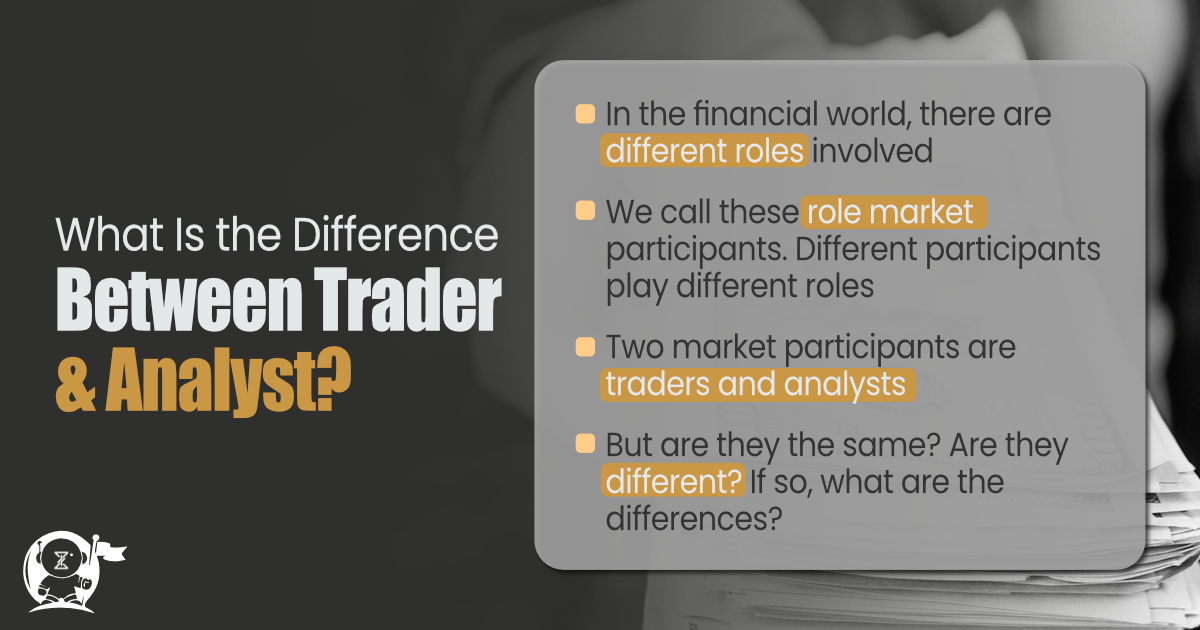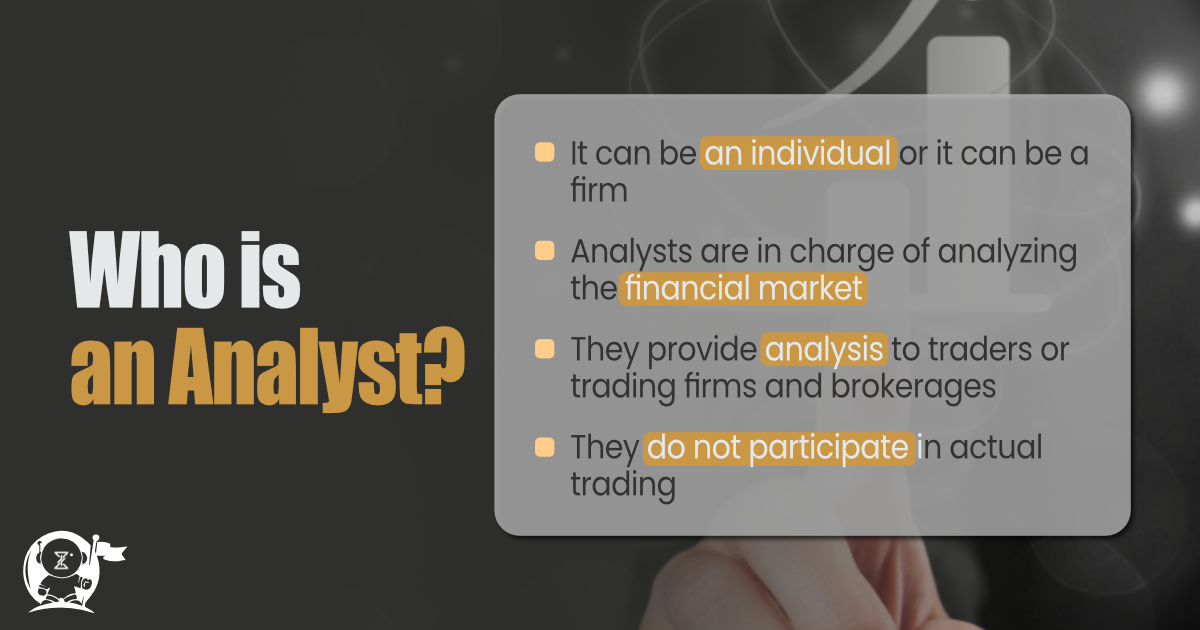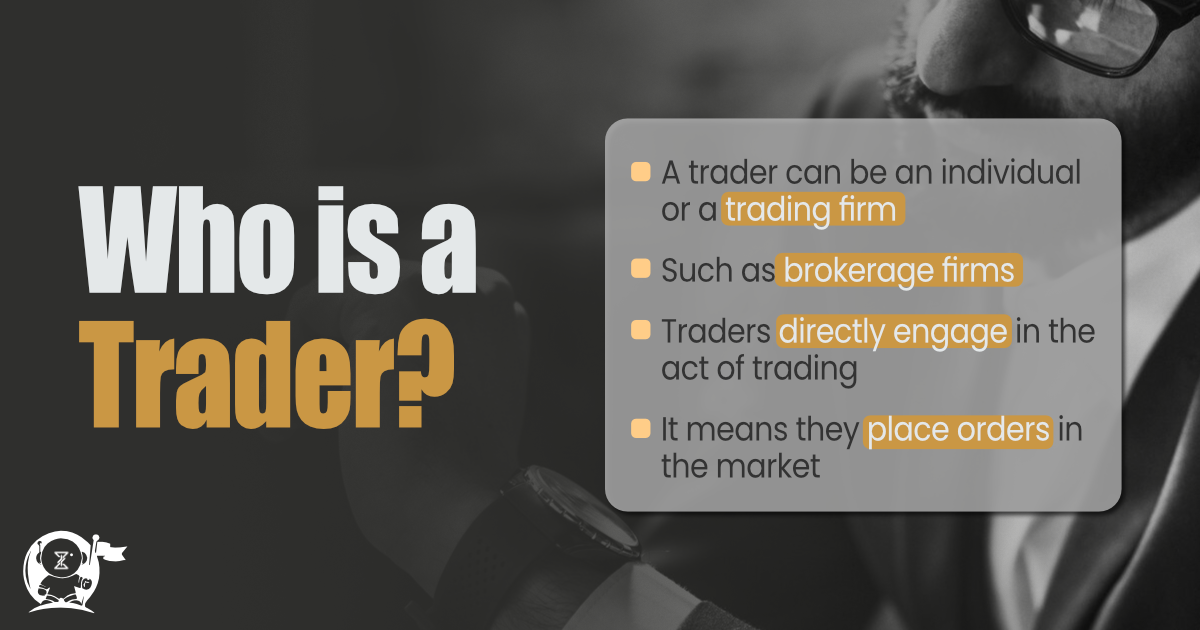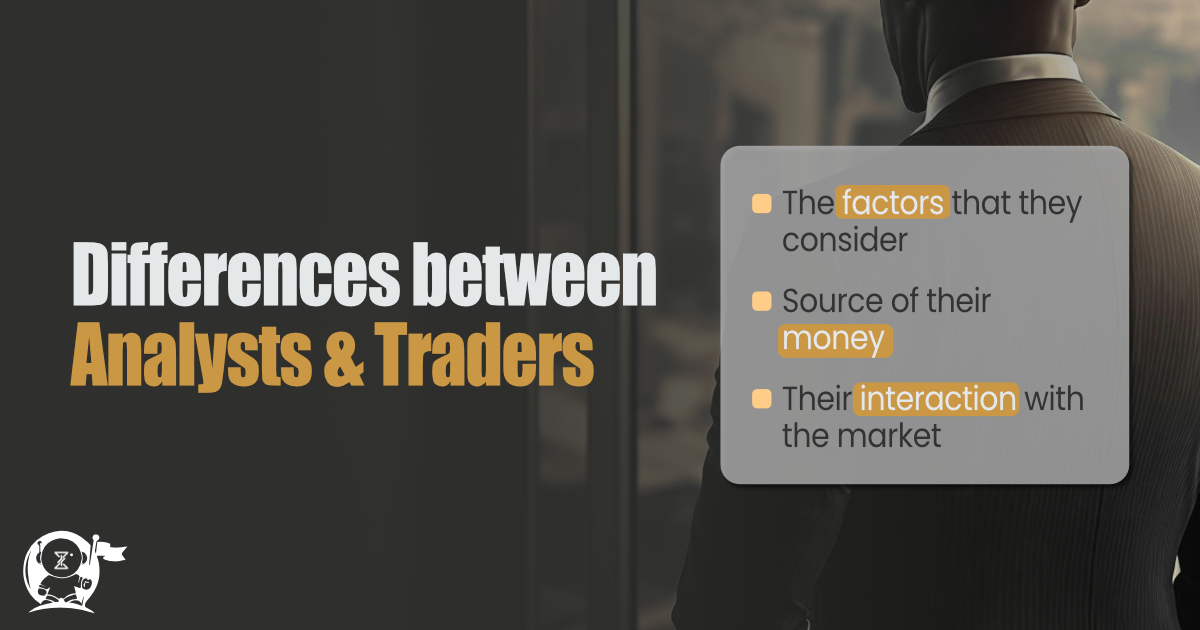In any market there are different types of participants and Trader . Thinking that everyone who is active in a financial market is a trader would be an overgeneralization and it would lead to an unclear image of the financial world. The reality is that different participants in any market play different roles and have different responsibilities.
Two important roles are trader and analyst. But are they the same? What exactly is the difference between them? Which role should you assume when you decide to enter the world of trading and being in a financial market? The answers to these questions and much more are what await you in this article. So read on to find out all about the differences between trader and analyst.

You should read: Is Prop Trading Better than Hedge Fund 2024?
Who Exactly Is an Analyst in Financial Markets?
Before we discuss the differences between analysts and traders, we need to talk about the definition of an analyst and a trader first. Let’s start with the definition of an analyst and see who can qualify for this role in financial markets.
In essence, an analyst can be a person, an individual, or a firm that is in charge of carrying out market analysis. Their whole purpose is to look at the market data and analyze them.
Their analysis can be carried out in many different ways. As a whole, there are two major pathways for analysis. The first one has to do with technical analysis, in which historical market data and price movement data are taken and then studied in order to detect patterns in them. Then these patterns are verified and confirmed in such a way to calculate the probability of their occurrence again in the future.
On the other hand, analysts can also use another method known as fundamental analysis. In this form of analysis, as the name suggests, fundamental factors are taken into consideration for arriving at conclusions about what will happen in the market. Important factors such as economic data and overall status of any given economy.
So it is the job of an analyst to provide analysis to traders. Analysts themselves do not engage in trading and do not carry out actual trades in the market.

Who Exactly Is a Trader in Financial Markets?
We discussed what it means to be an analyst, now let’s see what it means to be a trader. Similarly, a trader can be an individual or firm that engages in the act of trading directly.
They do not usually carry out the analysis of the market themselves. Rather they receive market reports from the analysts. Instead, traders will place the orders for trades in the market.
Unlike analysts who make their money from providing such reports and analysis, traders make their money from trading itself.

You should read: Forex Robot Development and Trends in 2024
What Are the Differences Between a Trader and an Analyst?
So now you have a clear understanding of the definitions of analyst and trader. But to make things clearer, we want to elaborate on the differences between these two notions.
- The factors that they consider: one area of difference between analysts and traders is the type of factors and data that they take into consideration. Analysts, by nature, consider historical price records and historical data. This is because they want to use those historical factors and make predictions about the future of the market. It is precisely according to those historical factors that they derive their conclusion and analysis. On the other hand, traders focus on factors that are most recent. This means a trader will most readily consider the current prices of an asset or a trading pair, for instance, in the forex market. This is clearly because that type of data is the most important for the trader at that moment, since decisions are made based on that current data.
- Source of their money: yet another point of difference between analysts and traders is their source of income. For instance, companies and firm that are in the business of analysis make their money from the reports that they provide to other companies or individuals. There are many firms that are only in the business of providing market reports to traders. Additionally, the amount of money that they make is also dependent on the strength, accuracy, reliability, and validity of the data they provide. But traders themselves make their money in a more direct manner. They make money by executing trades in the market and indeed by placing orders. Whenever those orders are carried out, they either make money to sustain a certain amount of loss.
- Their interaction with the market: lastly, another manner in which analysts and traders act in different ways is through their interaction with the market itself. Analysts have a more indirect interaction with the market since they do not actually place any order or want to execute any trades in the market. Rather they only look at and evaluate the data of the market. On the other hand, traders interact with the market in the most direct way possible. They place orders in the market for the trades they want to execute.

You should read: Maximizing Efficiency Running Multiple Forex Robots in 2024
Conclusion
There are different roles in the market that play different parts in moving the world if finance is ahead. Two very important roles are known as a trader and an analyst and a peculiar aspect of them is that sometimes they are taken to be the same. When in fact they are completely different. A trader is a person or a firm that actually executes traders in any given financial market. On the other hand, an analyst can also be a person or a firm that is only in charge of analyzing the market and providing accurate forecasts to traders.

